

From Beginning

Looking to build a solid foundation in programming? Patel Web Solution offers expert-led C Language Training in Ahmedabad, designed for beginners who want to start their journey in software development with one of the most essential and influential programming languages of all time.
C Language is a powerful, structured, high-level programming language created by Dennis Ritchie in the 1970s at Bell Labs. Known for its speed, simplicity, and control over hardware, C has become a cornerstone of modern software development. It remains widely used in system programming, embedded systems, and performance-critical applications. Whether you're a complete beginner or someone looking to sharpen your fundamentals, C is the perfect starting point to learn how computers work at the core.
Our C Language Training in Ahmedabad at Patel Web Solution equips you with essential programming skills and logical thinking. As the stepping stone to many other programming languages and technologies, mastering C opens the doors to a wide range of career opportunities in software development, embedded systems, and beyond.
Ready to begin your programming journey? Contact us today to schedule a free demo session!

Yes, Sure. You can attend a Free Demo Lecture.
Yes, We will Provide ISO 9001:2015, Government Approved Certificate.
Yes, you Can Pay your Fees in EMI options.
Yes, you will get a good Discount in One Short Payment Option.
Yes,our 50% students are from Non IT Background.
Yes, 100%. We have our own Job Placement Consultancy – My Job Placement.
Yes, we are providing FREE Spoken English Sessions, Interview Preparation & Mock Round for Interviews.
Yes Sure, We arrange Our Batches according College Students & Working Professionals.
As per our standard Rules, We have decided a fix duration for every courses. But if any student requires a few more time then no problem.
Yes, We are providing 15/45 Days Internship & 3 to 12 Months Internship also we are providing with Live Project Training & Job Placement.
Due to its ability to support both low-level and high-level features, C is considered a middle-level language. It is both an assembly-level language, i.e. a low-level language, and a higher-level language. Programs that are written in C are converted into assembly code, and they support pointer arithmetic (low-level) while being machine-independent (high-level). Therefore, C is often referred to as a middle-level language. C can be used to write operating systems and menu-driven consumer billing systems.
Each variable in C has an associated data type. Each data type requires different amounts of memory and has some specific operations which can be performed over it. It specifies the type of data that the variable can store like integer, character, floating, double, etc. In C data types are broadly classified into 4 categories:
Keywords: Predefined or reserved words in the C programming language. Every keyword is meant to perform a specific task in a program. C Programming language supports 32 keywords.
Scope in a programming language is the block or a region where a defined variable will have its existence and beyond that region, the variable is automatically destroyed. Every variable has its defined scope. In simple terms, the scope of a variable is equal to its life in the program. The variable can be declared in three places These are:
Static variables in the C programming language are used to preserve the data values between function calls even after they are out of their scope. Static variables preserve their values in their scope and they can be used again in the program without initializing again. Static variables have an initial value assigned to 0 without initialization.
Recursion is the process of making the function call itself directly or indirectly. A recursive function solves a particular problem by calling a copy of itself and solving smaller subproblems that sum up the original problems. Recursion helps to reduce the length of code and make it more understandable. The recursive function uses a LIFO ( Last In First Out ) structure like a stack. Every recursive call in the program requires extra space in the stack memory.
Ans. Local variables are declared inside a block or function but global variables are declared outside the block or function to be accessed globally.
| Local Variables | Global Variables |
|---|---|
| Declared inside a block or a function. | Variables that are declared outside the block or a function. |
| By default, variables store a garbage value. | By default value of the global value is zero. |
| The life of the local variables is destroyed after the block or a function. | The life of the global variable exists until the program is executed. |
| Variables are stored inside the stack unless they are specified by the programmer. | The storage location of the global variable is decided by the compiler. |
| To access the local variables in other functions parameter passing is required. | No parameter passing is required. They are globally visible throughout the program. |
Pointers are used to store the address of the variable or a memory location. Pointer can also be used to refer to another pointer function. The main purpose of the pointer is to save memory space and increase execution time. Uses of pointers are:
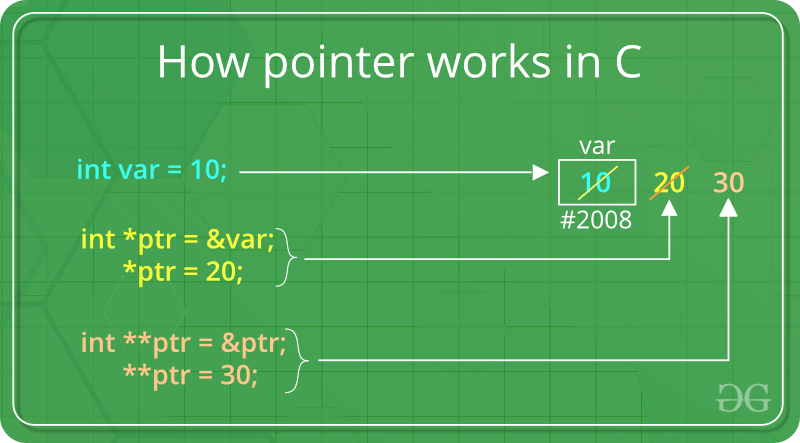
Whenever a variable is defined some amount of memory is created in the heap. If the programmer forgets to delete the memory. This undeleted memory in the heap is called a memory leak. The Performance of the program is reduced since the amount of available memory was reduced. To avoid memory leaks, memory allocated on the heap should always be cleared when it is no longer needed.
Loops are used to execute a block of statements repeatedly. The statement which is to be repeated will be executed n times inside the loop until the given condition is reached. There are two types of loops Entry controlled and Exit-controlled loops in the C programming language. An Infinite loop is a piece of code that lacks a functional exit. So, it repeats indefinitely. There can be only two things when there is an infinite loop in the program. One it was designed to loop endlessly until the condition is met within the loop. Another can be wrong or unsatisfied break conditions in the program.
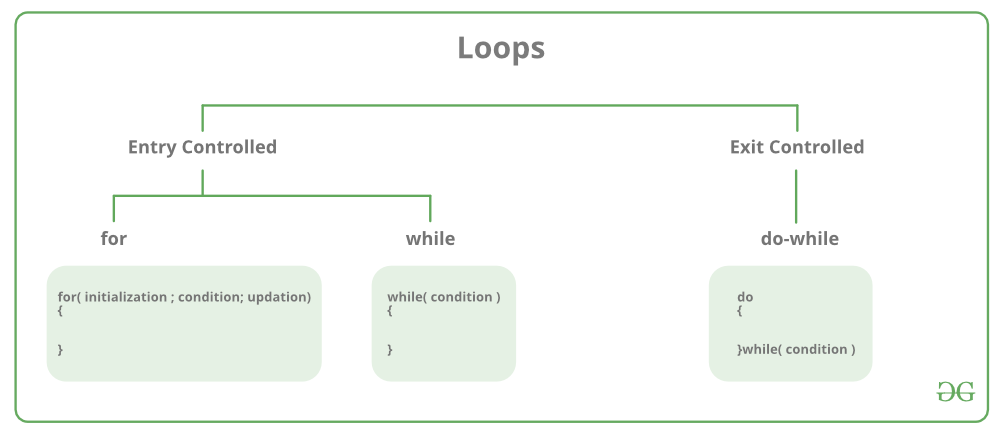
C language has numerous libraries which contain predefined functions to make programming easier. Header files contain predefined standard library functions. All header files must have a ‘.h’ extension. Header files contain function definitions, data type definitions, and macros which can be imported with the help of the preprocessor directive ‘#include’. Preprocessor directives instruct the compiler that these files are needed to be processed before the compilation. There are two types of header files i.e, User-defined header files and Pre-existing header files. For example, if our code needs to take input from the user and print desired output to the screen then ‘stdio.h’ header file must be included in the program as #include. This header file contains functions like scanf() and printf() which are used to take input from the user and print the content.
Every keyword is meant to perform a specific task in a program. Their meaning is already defined and cannot be used for purposes other than what they are originally intended for. C Programming language supports 32 keywords. Some examples of reserved keywords are auto, else, if, long, int, switch, typedef, etc.
The structure is a keyword that is used to create user-defined data types. The structure allows storing multiple types of data in a single unit. The structure members can only be accessed through the structure variable.
Example:
struct student
{
char name[20];
int roll_no;
char address[20];
char branch[20];
};
A union is a user-defined data type that allows users to store multiple types of data in a single unit. However, a union does not occupy the sum of the memory of all members. It holds the memory of the largest member only. Since the union allocates one common space for all the members we can access only a single variable at a time. The union can be useful in many situations where we want to use the same memory for two or more members.
In C, enumerations (or enums) are user-defined data types. Enumerations allow integral constants to be named, which makes a program easier to read and maintain. For example, the days of the week can be defined as an enumeration and can be used anywhere in the program.
Syntax: enum enumeration_name{constant1, constant2, ... };

Note: Consider our program of Fibonacci.
Static memory allocation: Memory allocation which is done at compile time is known as static memory allocation. Static memory allocation saves running time. It is faster than dynamic memory allocation as memory allocation is done from the stack. This memory allocation method is less efficient as compared to dynamic memory allocation. It is mostly preferred in the array.
Dynamic memory allocation: Memory allocation done at execution or run time is known as dynamic memory allocation. Dynamic memory allocation is slower than static memory allocation as memory allocation is done from the heap. This memory allocation method is more efficient as compared to static memory allocation. It is mostly preferred in the linked list.
Ans. Every local variable of a function is known as an automatic variable in the C language. Auto is the default storage class for all the variables which are declared inside a function or a block. Auto variables can only be accessed within the block/function they have been declared. We can use them outside their scope with the help of pointers. By default auto keywords consist of a garbage value.
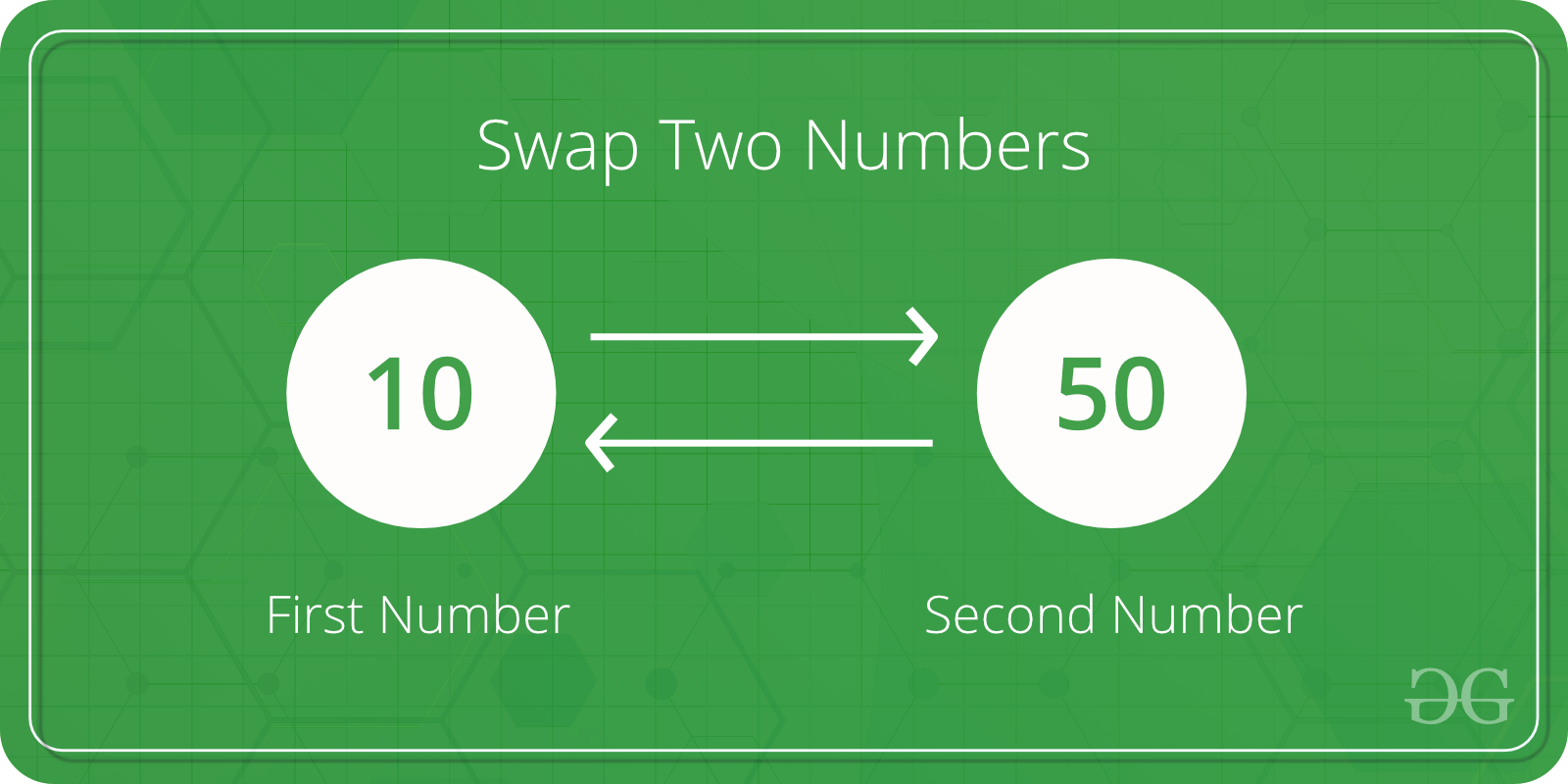
Note: Consider our program of swapping.
Note: Consider our program of palindrome or not.
Note: Consider our program of recursion.
The extern keyword is used to extend the visibility of the C variables and functions in the C language. Extern is the short name for external. It is used when a particular file needs to access a variable from any other file. Extern keyword increases the redundancy and variables with extern keyword are only declared not defined. By default functions are visible throughout the program, so there is no need to declare or define extern functions.
printf() function is used to print the value which is passed as the parameter to it on the console screen.
Syntax:
print(“%X”,variable_of_X_type);
scanf() method, reads the values from the console as per the data type specified.
Syntax:
scanf(“%X”,&variable_of_X_type);
In C format specifiers are used to tell the compiler what type of data will be present in the variable during input using scanf() or output using print().
getc(): The function reads a single character from an input stream and returns an integer value (typically the ASCII value of the character) if it succeeds. On failure, it returns the EOF.
The fgetc() function reads the character at the current file position in the specified file, and increments the file position.
getch(): It is a nonstandard function and is present in ‘conio.h’ header file which is mostly used by MS-DOS compilers like Turbo C.
Note: Consider our program.

Flexible supported learning













Flexible supported learning







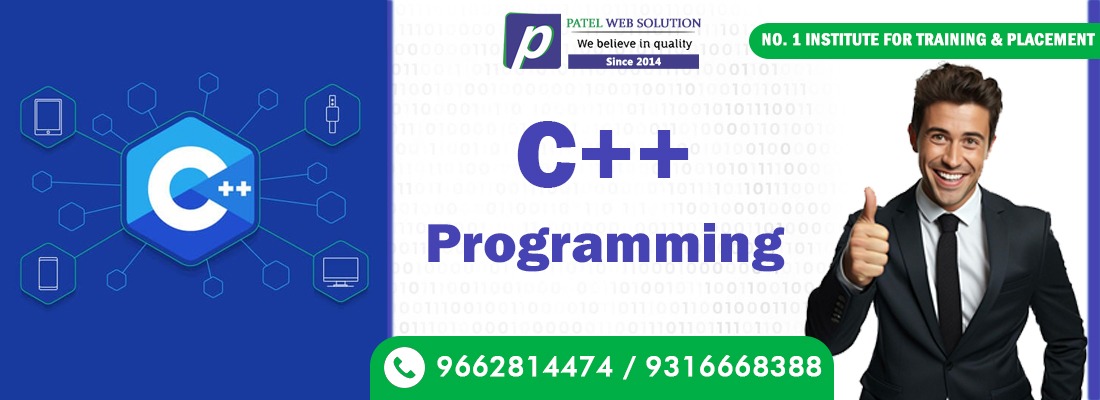
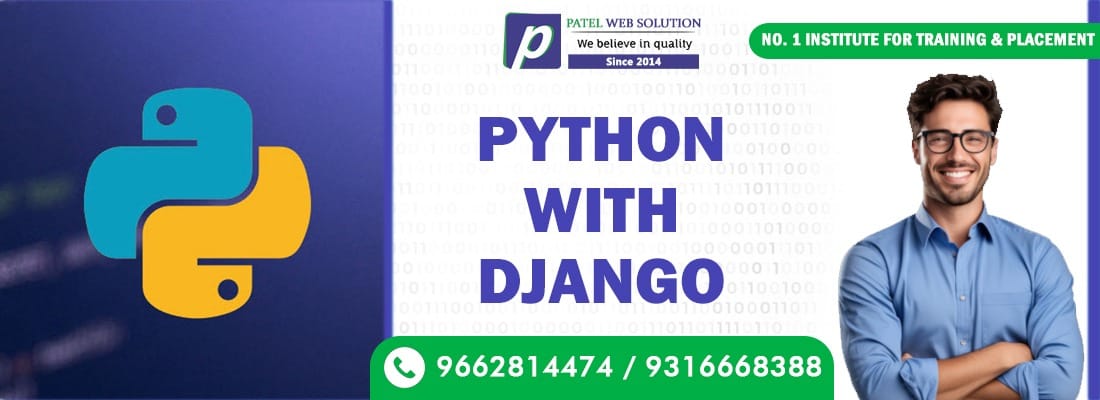

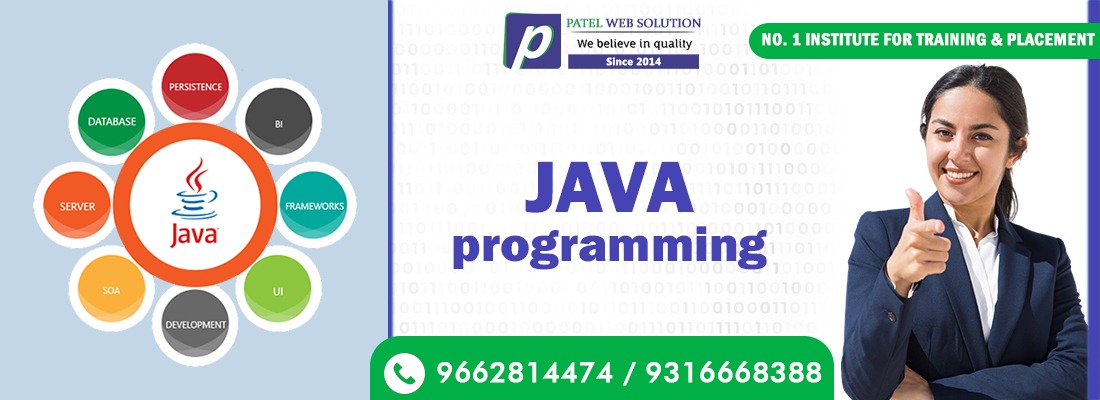

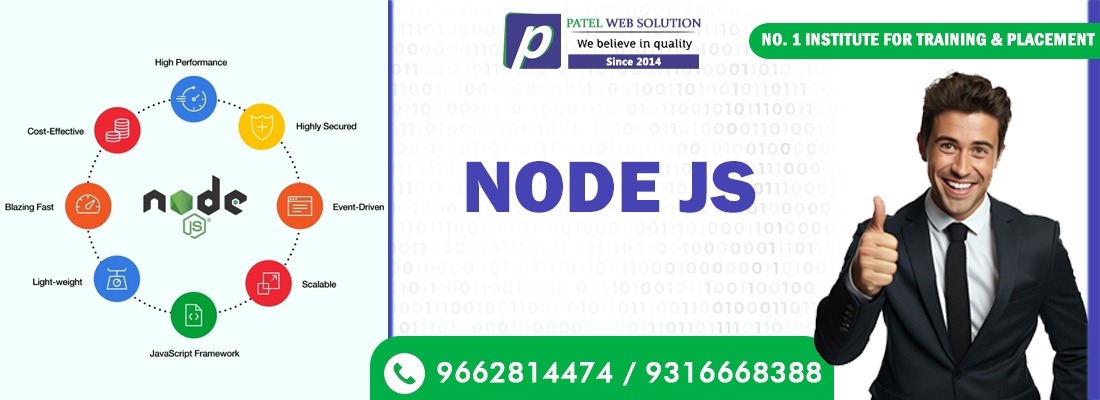
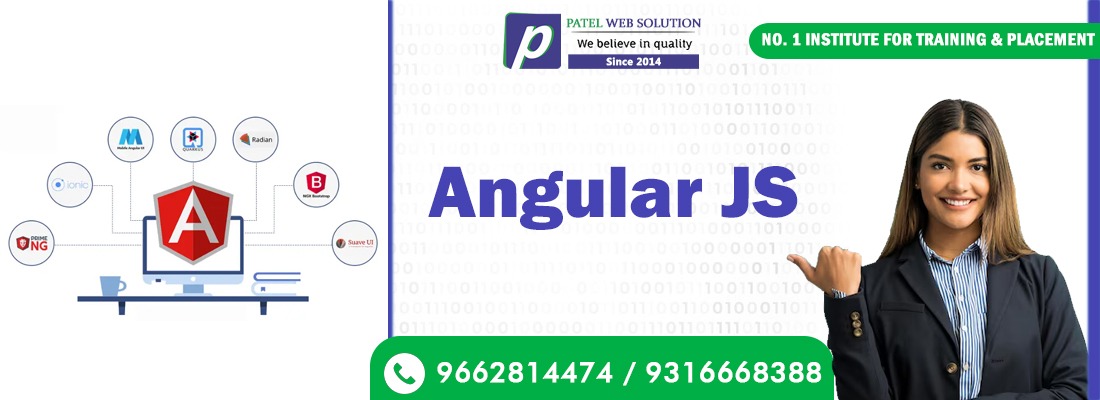














Apart from technical training in various Website Development, Application Development & Software Development , Patel Web Solution helps you get a foothold I booming IT Industry. 100% Placement Assistance a student completes his / her course successfully. Patel Web Solution Dedicated Placement Cell helps him/her interview with major companies in job roles like programmer, web developer, software tester, database analyst & many more.






















Land your dream job at one of the leading tech companies






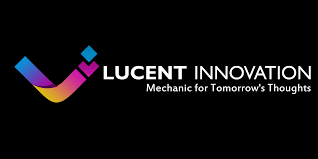
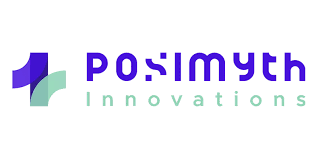
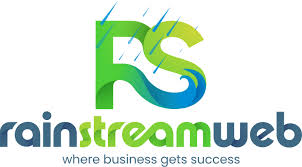
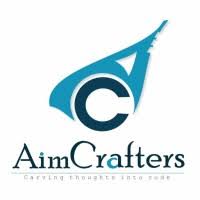
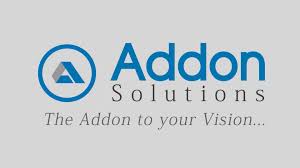

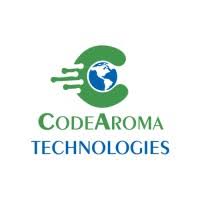

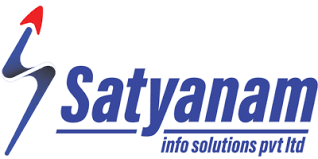
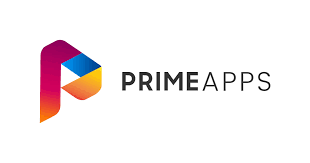

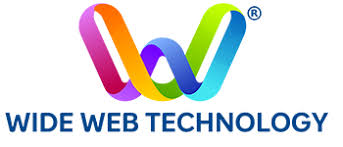

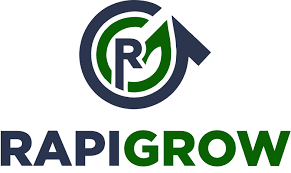


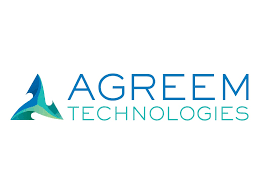
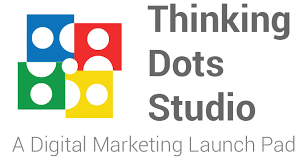




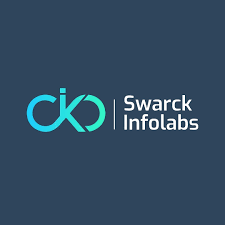

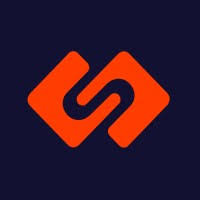




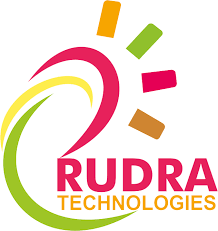

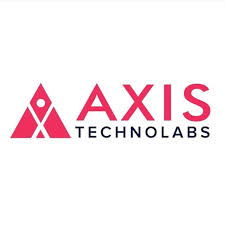

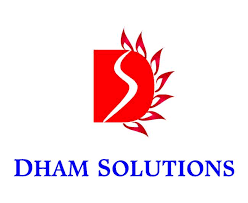



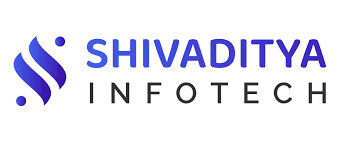


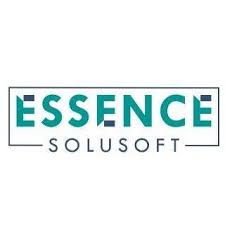


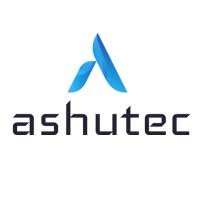
We believe in quality

Patel web solution exceeded my
expectations with their
comprehensive Power Bi course.
Every aspect was covered in
detail. Patel Web Solution are
highly knowledgeable and
approachable, always ready to
provide guidance and support.
My trainers are motivating and
inspiring me to move forward
for every step. I'm on the way to
my "developer" career. Thanks
for the supportive service. I'll
surely suggest PWS to all my
friends.
Master of Computer Application (MCA) - RB Institute of Management Studies

I'm Dhruvi Parekh. I enrolled in
Web Development Course here.
It was really really good
experience and learned a lots of
new things here, faculty was also
good and friendly too. Overall it
was really nice here in Patel
Web Solutions and I would
really recommend to visit here
Diploma in Computer Engineering. - Monark University

I took a Full Stack Development
programming course at Patel
Web Solution, and it was
fantastic. The instructor was
very clear and thorough,
explaining complex concepts in
simple terms. The course had a
lot of practical exercises, which
helped me build a strong
understanding of the language.
The institute offered great
support, including career
counseling and resume-building
workshops. I now feel confident
in applying for Full Stack
Development roles, and I have
already landed my first job with
the help of job placement done
by Patel Web Solution.
Bachelor of Computer Application(BCA) - Monark University

My name is Radhika Borad. I
have learn coreldraw softwere
here. My experience was
amazing, this course gave me a
head start to my career. I got
access to an amazing community
where people uplift each other
and grow together. It is carefully
curated to help you throughout
your journey. It's a once in a
lifetime experience and I'll
forever be grateful. And I also
get my job placement Support so
I suggest to all please must visit
Patel Web Solution.
Bachelor of Computer Application (BCA) - KSN kansagara Mahila College, Rajkot

I am so grateful and thankful to
Heena Maam & Manushree
Maam for helping me to learn
Adobe Illustrator in very efficient
way . You guide me so well
thank you for giving me this
opportunity in IT field I have got
placement in a very good
company from Patel Web
Solution and I am very happy
with my job and in future I can
make my career in this job.
Thanks a lot to PWS and my
trainers for the continuous
support and concern.
Diploma in Computer Engineering - Apollo Institute of Engineering and
Technology

Learning from Patel Web
Solution has transformed my
skills to a big extent. When I
joined C,C++ & Web Design
course, I had zero skills. But
now I am happy that I am
knowledgeable to develop
innovative websites. Thanks to
the entire team of Patel Web
Solution for their constant
support.I really appreciate
Bachelors in Vocational in Information and
Bachelor of Commerce(B.com) - JG University

Hello my name is Priyanka
Mangroliya. I recently
completed React Native Course
at Patel Web Solution. I had
best experience during my
training. The trainer is really
good and explained me with
many real-time examples. The
institution has very good in
infrastructure and also good for
studying. I will surely
recommend this institute if u
want to improve your personal
skills and knowledge.
Bachelors in Vocational in Information and
Bachelor of Commerce(B.com) - R.K Vaghasiya Commerce College

I have completed Ui/Ux Course
here. Institute is a top-notch
service that offers affordable and
high-quality education. The
institute provides support and
guidance, and offers career
insights and portfolio
preparation sessions class and
environment. They teach like
real life experience and things.
My confidence and my
personality totally changed. One
best thing is Free interview skills
for all..so guys please visit Patel
Web Solution for making your
future brighter with learning best
Industry level Courses.
Bachelors in Vocational in Information and
achelor of Commerce(B.com) - Shree Sahjanand Arts & Commerce
College

Completing Web Development
with Patel Web Solution was a
wonderful experience. Under
their guidance, I delved into
various aspects of web
development, from HTML and
CSS to JavaScript and beyond.
The hands-on projects allowed
me to apply theoretical
knowledge to real-world
scenarios, honing my skills and
boosting my confidence. A good
place to grow and build a
network.
Bachelors in Vocational in Information and
Technology (MCA) - Silver Oak University

I highly recommend Patel Web
Solution for their comprehensive
IT courses. Their React
JS course covered everything
from HTML to Bootstrap and
beyond. The teaching was
excellent, and I gained valuable
industry-related experience. The
interview preparation classes
were also incredibly helpful. If
you're looking for a reliable
place to learn IT skills, Patel
Web Solution is the way to go!
Master of Computer Application (MCA) - RB Institute of Management Studies

I just completed my internship
in Web Design Course with
Python(django). Gain the
industry level knowledge. An
enriching experience with top-
tier faculty and excellent
learning resources. The campus
is welcoming, and the
opportunities for growth are
endless.Overall a very
informative training session.
Course content got well
covered and also demonstrated
the concept very well. Thanks
for such an informative and
concept-clearing training
session.
B-tech - Indus University

Patel Web Solution is a Best
Company for IT training. I
learnt C,C++, Web Design, Php
& WordPress. The professors
are experts in their fields and are
always available to help
students. The curriculum is
rigorous but engaging, and the
hands-on learning opportunities,
such as internships and projects,
have been invaluable. The
campus is beautiful, with
modern facilities and plenty of
study spaces. I feel prepared for
my career, and I highly
recommend this institute to
anyone looking for a quality
education.
12th Commerce - Jai Hind Vidhyalaya

I chose Flutter training in Patel
Web Solution . The trainer is
really good and explained me
with many real-time examples.
The institution has very good in
infrastructure and also good for
studying. I will surely
recommend this institute if u
want to improve your personal
skills and knowledge. The
institute was very helpful in
understanding my need and
accommodating it. Thanks for
the training.
Bachelor of Computer Application (BCA) - Silver Oak university

I recently attended the Spoken
English course at Patel Web
Solution, and I had an amazing
experience! The instructors
were knowledgeable,
supportive, and helped me to
improve my English speaking
skills significantly. The course
was well-structured, and the
atmosphere was friendly and
encouraging.I highly
recommend Patel Web Solution
to anyone looking to improve
their Spoken English skills. The
institute truly delivers on its
promise, and I'm grateful for
the experience
12th Science - Pooja Vidhyalaya

I recently completed the Tally
classes and the CCC course,
and I'm thoroughly impressed
with both. The Tally classes
were incredibly detailed and
well-structured, providing a
solid foundation in accounting,
GST, and financial
management software. The
instructors were highly
knowledgeable and ensured that
all concepts were clearly
explained, making it easy to
grasp even for beginners.
BBA (HONS) - GLS University

5 I have completed Front End
Development Course. Very
knowledgeable faculty and
good facilities here from the
fundamentals to advanced
strategy every aspect was
covered in detail. I would
personally recommend to all to
join Patel Web Solution for
learning best IT courses. The
course helped me to build
confidence, Valuable
experiences and learning.
B.E (IT) - Sabar Institute of Technology for Girls

Hello, my name is Happy Patel.
I recently completed Full
Stack-Development Course at
Patel Web solution. I had the
best experience during my
training. Attending this institute
was a life-changing decision for
me. I came in unsure of my
career path, but thanks to the
mentorship and opportunities
provided by the faculty, I
gained confidence and clarity.
The networking opportunities
have been incredible, and I now
have a solid foundation for my
career. Provide personal
attention for each student was
remarkable point. So as per my
whole experience I strongly
recommend to you all to must
visit Patel Web Solution for
your development in IT
Industry.
Pursuing B.voc IT - Silver Oak University

My Name Patel Dharmik .I
learnt C language and CCC
Course here. The course
structure was well-defined and
each and every topic was deeply
covered. I also received
personalized attention from
Patel Web Solution I must
request to you all please to visit
Patel Web Solution for learning
best computer courses.
12th pass (Commerce) - Silver Oak University

Hi, I'm Arpit, and I recently
completed the PHP Web
Development course at Patel
Web Solution. The course was
well-structured, and the
teaching methods were
engaging. The instructors were
knowledgeable and supportive.
The course covered topics from
basics to advanced, including
Php particularly enjoyed the
project-based learning
approach, which helped me to
build a strong portfolio
Bachelor of Computer Application (BCA) - S.V Vanijya Mahavidhyalaya

My time at Patel Web Solution
has truly been life-changing.
The professors are not only
experts in their fields but also
genuinely care about the
success of their students. The
learning environment is
collaborative, and the campus
is vibrant with plenty of
extracurricular activities. The
institute encourages personal
growth, and I’ve made lifelong
friendships here. It’s been a
wonderful experience, and I
highly recommend this institute
to anyone looking to advance
their education and career..
B.tech in Computer Engineering - Monark University